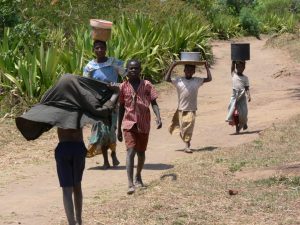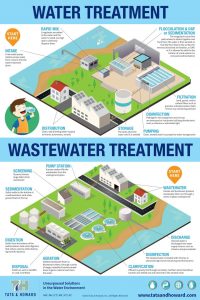James’ Rwanda Impact Tour Journal
Water for People Impact Tour Rwanda 2019
James Hoyt, P.E.
Day 4
Today is the last day of the tour and we spent the day in the Gicumbi District. Compared to Rulindo, the Water for People Everyone Forever program is relatively new to Gicumbi, but a great deal of progress has already been made.
After our final ‘Coffee Club’ visit to Question Coffee, went set out for the Gicumbi District and were hosted for a Mayoral visit. Although early in the Everyone Forever process, great progress has already been made, and the Mayor was optimistic they could reach every goal ahead of schedule. Once again, it was very encouraging to see the District Government supporting the Water for People work and committing to long term success.
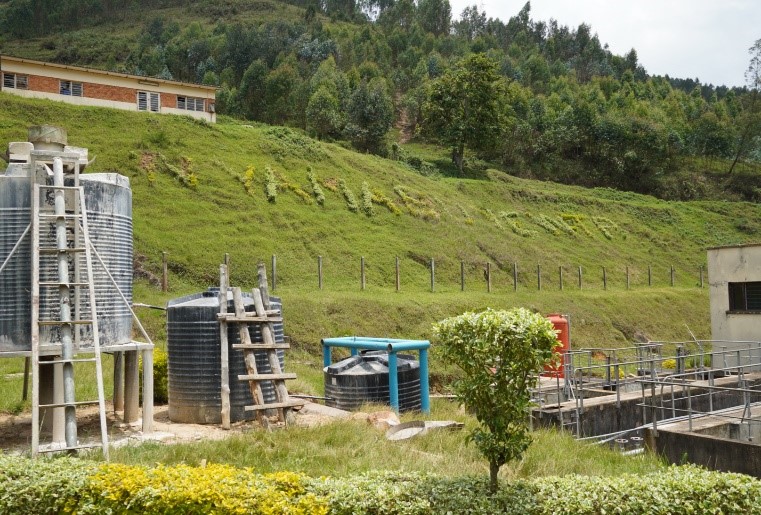
Water Treatment Plant
Following our meeting with the Mayor, we conducted field visits to a small rural Water Treatment Plant, a decentralized sludge processing facility, a recently completed water distribution system, and a home visit.
Unlike the large WTF serving Kigali, the WTF we toured today was a small, rural plant that treats approximately 0.4 MGD of spring-fed water. The plant treats the water using lime pH adjustment, aeration, filtration and chlorination. The plant is looking to expand capacity by adding additional spring sources and upgrades to the treatment process.
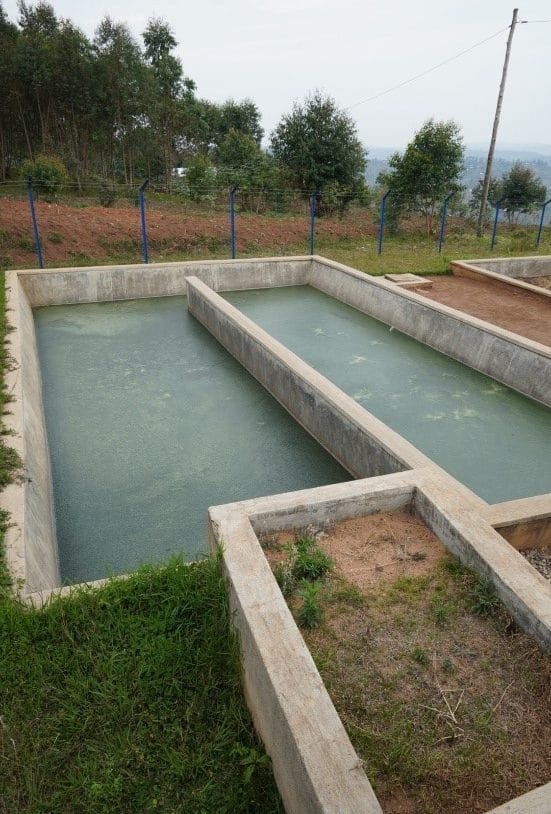
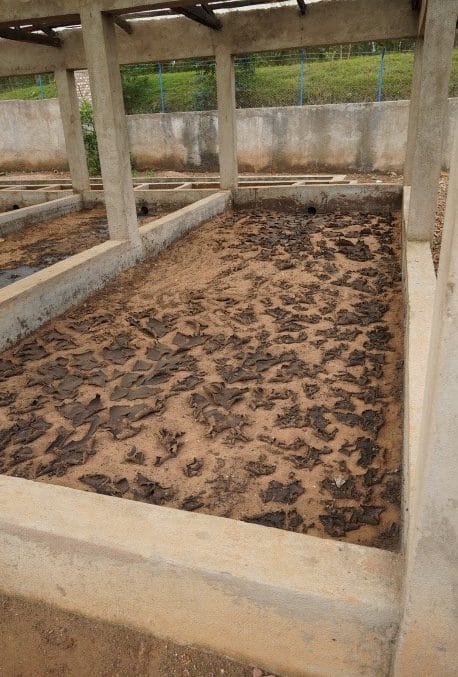
DEFAST
A highlight for me as a wastewater engineer was touring the Decentralized Fecal Sludge Treatment (DEFAST). As sanitation facilities are installed through Rwanda, there is an increased demand for safe disposal of the pit latrine waste. Historically, when a pit would become full of waste, you would just dig a new pit beside it. With increased focus on sanitary conditions and space becoming limited, there is now a need for improved latrines to be serviced and emptied. The service must be affordable for homeowners. Although Water for People does not fund widespread sanitation infrastructure projects in the same way they fund water projects, they support sanitation improvements through education, technology research and recommendations, establishment of supply chains, and support of local businesses and entrepreneurs.
The DEFAST facility is an example of the Water for People sanitation approach. Water for People has helped a local solid waste business owner expand his business to include pumping, hauling and treatment of latrine sludge waste. A portable vacuum pump is used to empty the latrines, and the waste is brought to the DEFAST plant for treatment. The plant screens large debris and rubbish for onsite incineration. The waste is then stored in a settling tank for separation of liquid and solid waste. The liquid supernatant receives biological treatment in lagoons and filtration though artificial wetlands. The final liquid product is sold as liquid nutrients. The sludge is anaerobically digested and applied to sand drying beds. The dried product is stabilized with charcoal and sold as fertilizer for land application. The ability to sell the end products allows the economics of the process to reduce the price for individual homeowners.
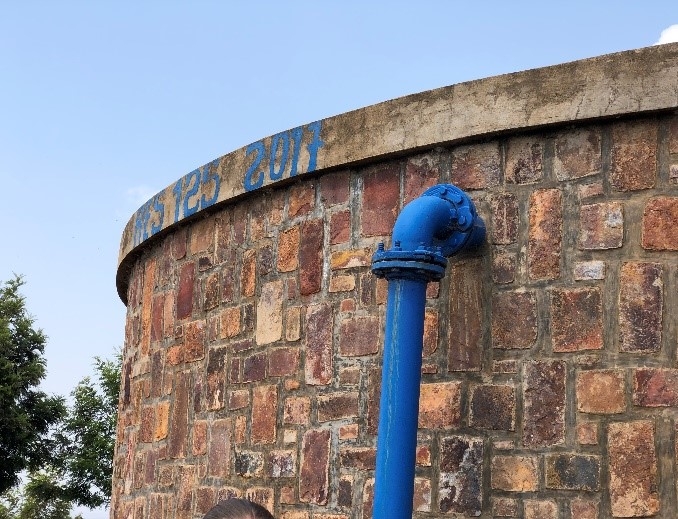
The Impact of Our Dollars
We briefly visited a recently completed water system which provided a fascinating look into the impact our dollars can make in a Rwandan community. The project included new water infrastructure to serve over 33,000 beneficiaries and cost approximately $3.2M USD. The cost to bring water and sanitation to a community for the first time costs less than $100 per person. This is considered an expensive project by Water for People Rwanda standards, who typically target a cost of $65 per beneficiary.
Home Visit
Lastly, we visited another home. This home belonged to a widow who lost her husband to the Rwandan genocide. It was once again heart warming to hear of the positive impact water has had on her life. It was also comforting to see that the Rwandan government had provided her with a cow and that her community supported her by providing work opportunities.
The drive back was long, dark and winding. Driving in Rwanda is an intense experience. Vehicles often pass each other on narrow roads and get close to pedestrians and obstacles as they wind through the hilly countryside. The driving made several people nervous, but we were always delivered safely to our destinations. As we proceeded towards our farewell dinner, we drove through areas not yet reached by Water for People and saw countless school children and people returning from work, walking long distances in the dark, with no lights, often pushing bicycles comically loaded sky-high with goods. It was a sobering reminder of how much work is left to do.
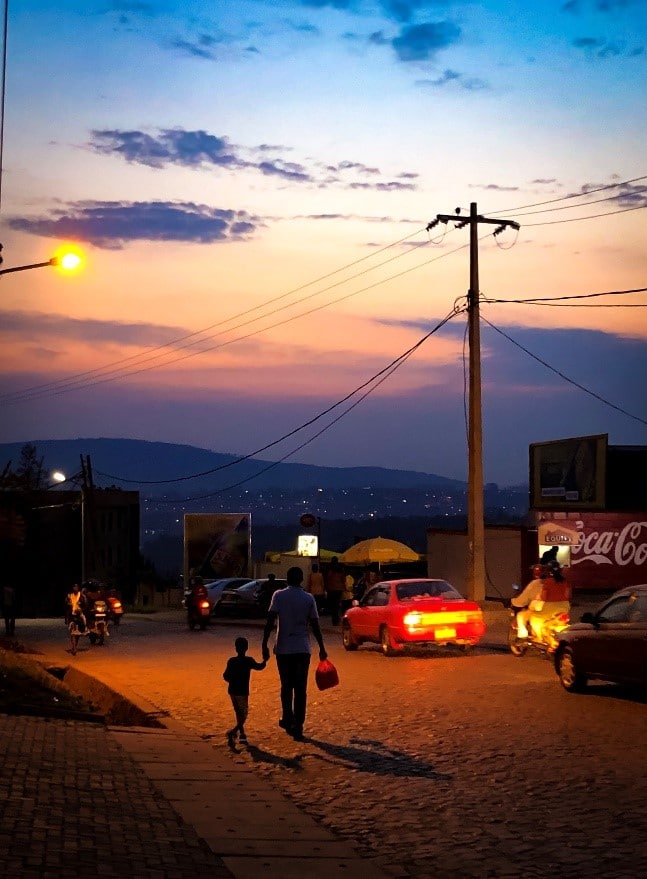
Farewell, Water for People
The farewell dinner was bittersweet. The food and conversation were great. We shared stories and laughter with our new friends, but too soon it was time to say goodbye. We shared one last time our high and low points of the day, and shared our ideas from bringing our experiences home in a meaningful way.
Although the trip had come to an end, I knew that my Water for People journey was just beginning. I am excited to bring all I’ve learned home and to become a champion for Water for People.
High Point: My high point today was the visit to the DEFAST facility. It was fascinating to hear about the approach Water for People had taken to address the emerging problem of fecal sludge in Rwanda. It was also fun to engage with the staff about their challenges and discuss their ideas for improve control and performance of the facility.
Low Point: Saying goodbye to new friends.
Learn more about the Water Treatment Plants here.

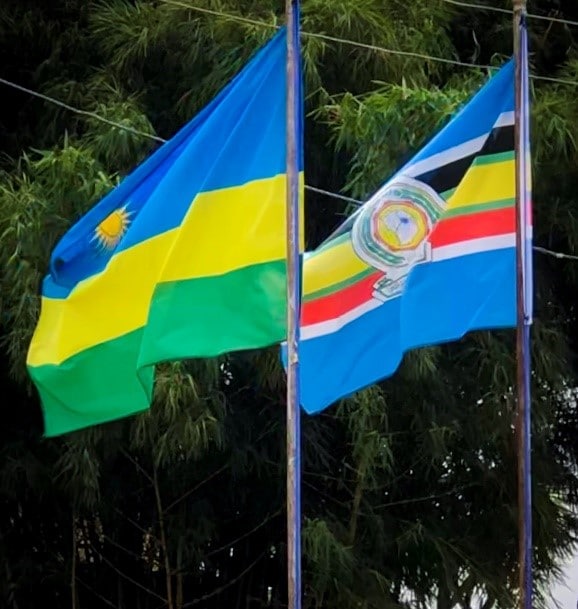
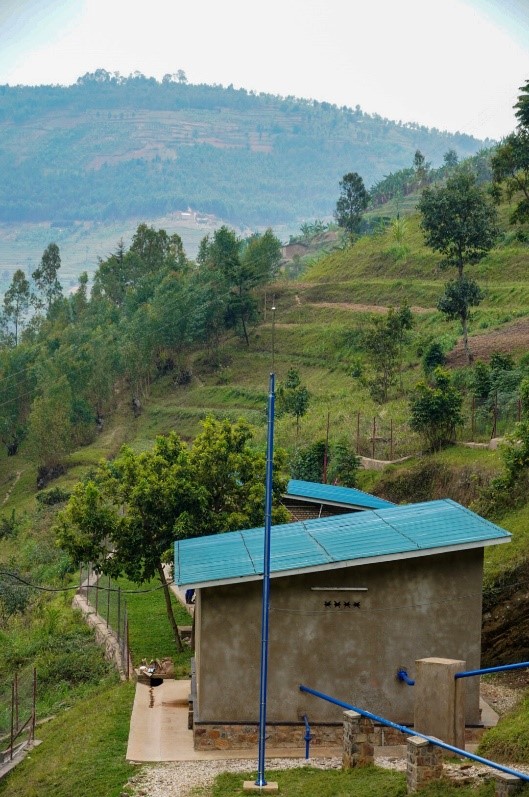
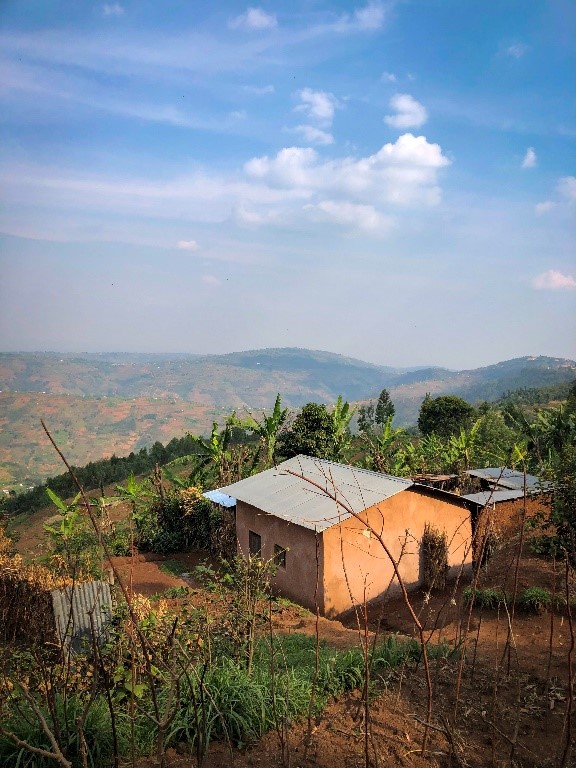
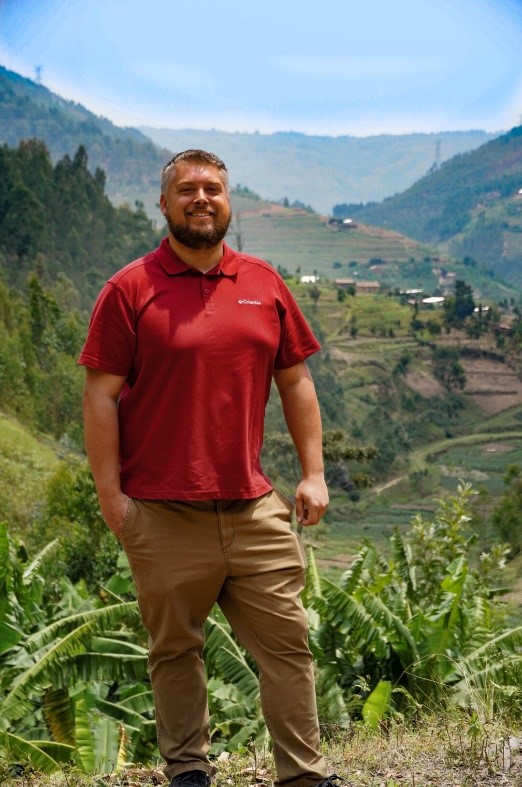
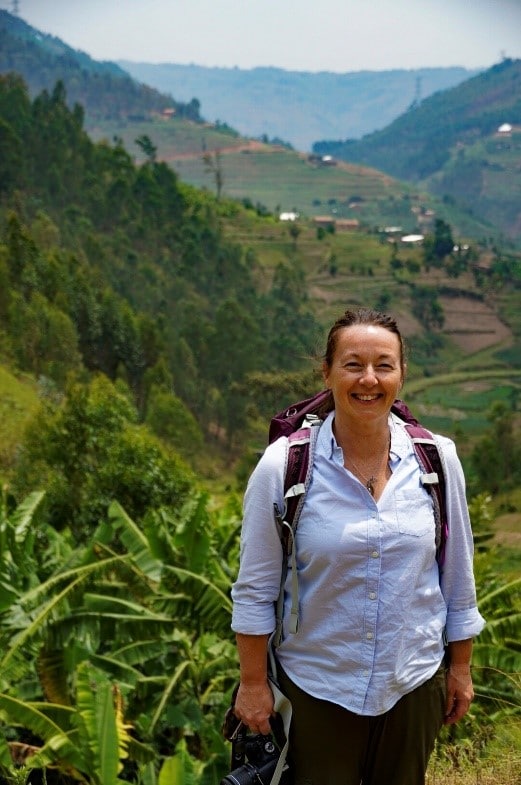
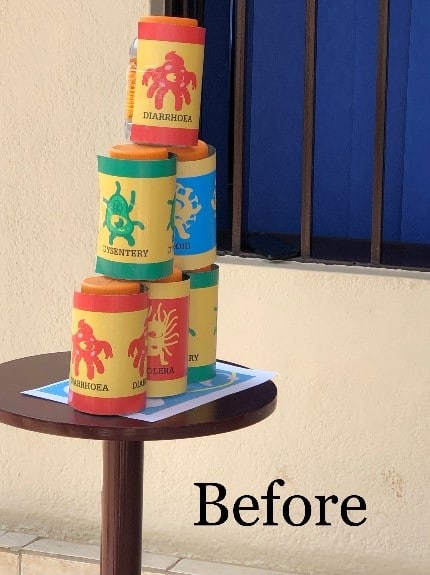
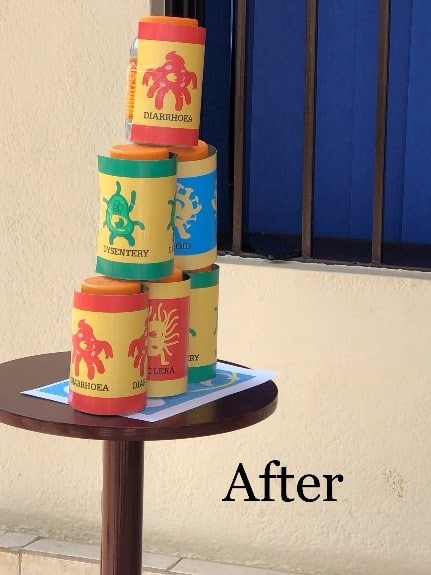
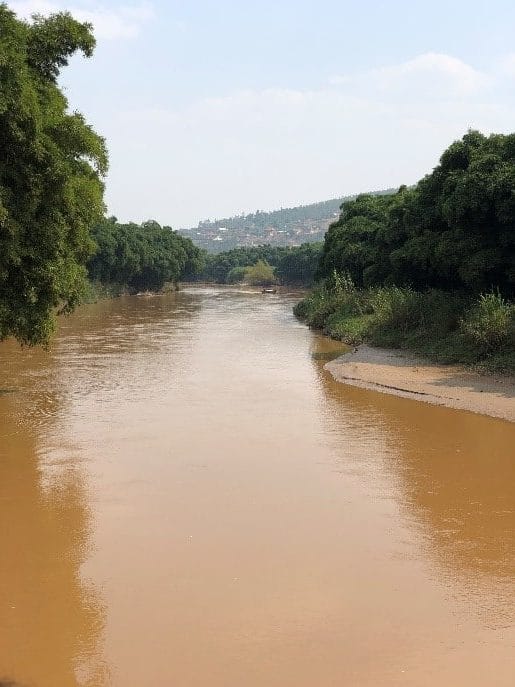
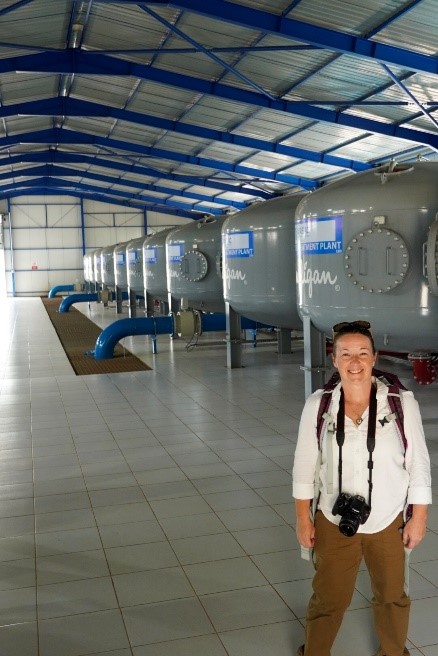
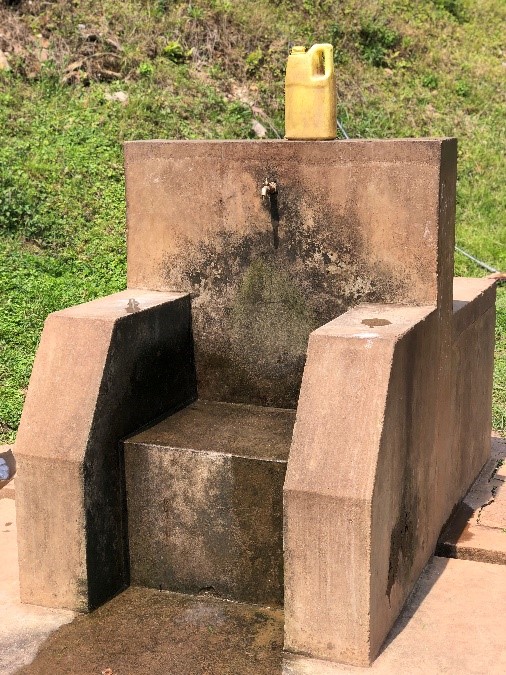
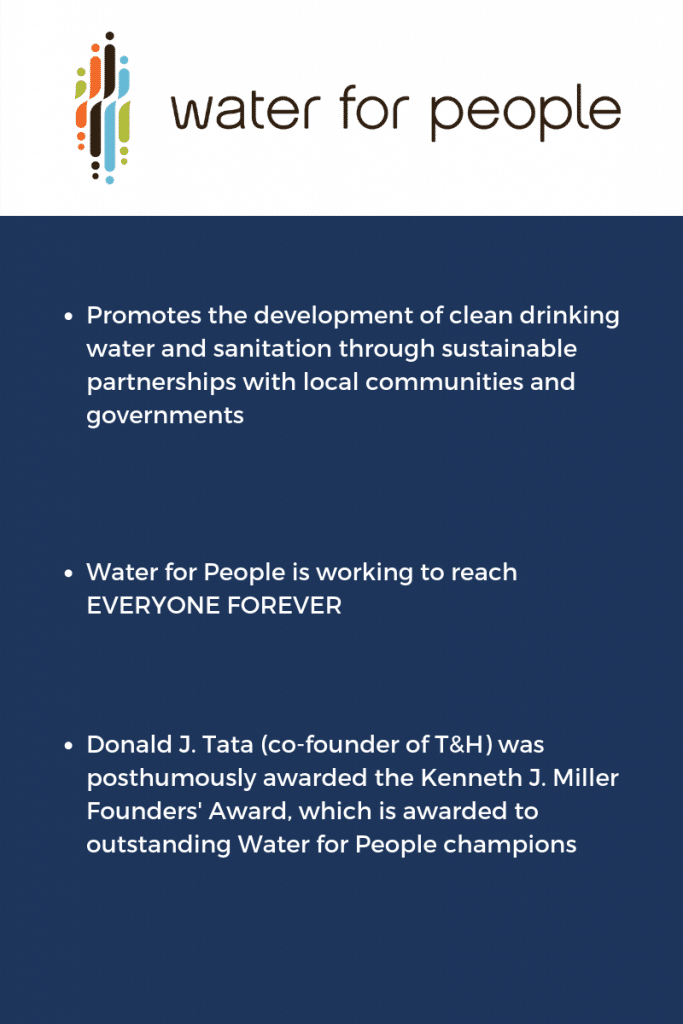
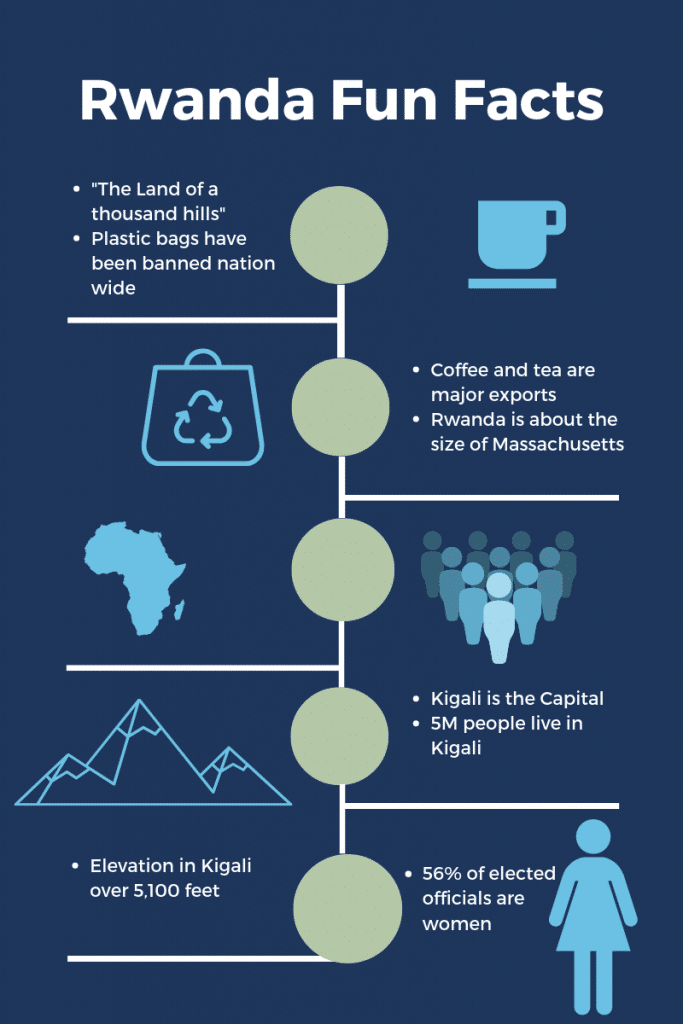
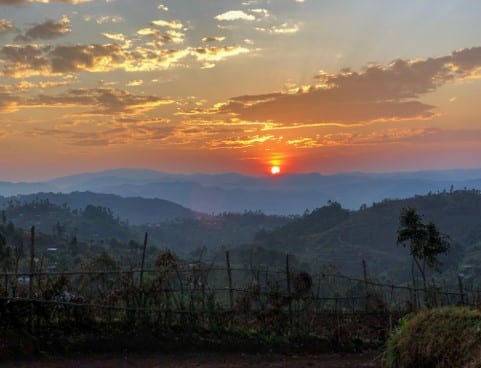
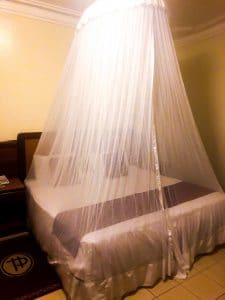 Saturday we teamed up with our new
Saturday we teamed up with our new 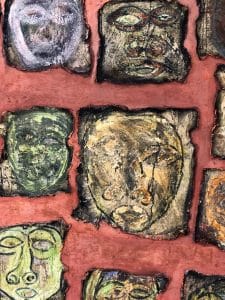 Our adventure wrapped up with a visit to a local market and milk bar. Against the advice of wiser people, three brave (perhaps foolish?) souls found a local milk bar where a traditional unpasteurized, fermented milk drink is served. Prior to the trip, I reluctantly promised friends and loved ones that I would not eat street-meat; however, I never agreed to avoid questionable dairy products. The milk was thick and creamy. The taste reminded me of unsweetened Greek yogurt. It was a fun experience, but moving forward I think I’ll stick to coffee.
Our adventure wrapped up with a visit to a local market and milk bar. Against the advice of wiser people, three brave (perhaps foolish?) souls found a local milk bar where a traditional unpasteurized, fermented milk drink is served. Prior to the trip, I reluctantly promised friends and loved ones that I would not eat street-meat; however, I never agreed to avoid questionable dairy products. The milk was thick and creamy. The taste reminded me of unsweetened Greek yogurt. It was a fun experience, but moving forward I think I’ll stick to coffee.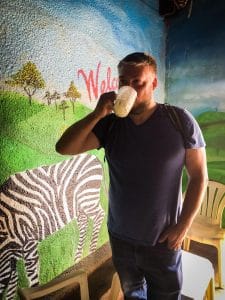
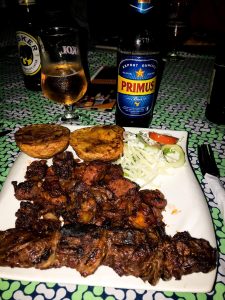 Overall, it was a real pleasure to meet the
Overall, it was a real pleasure to meet the 
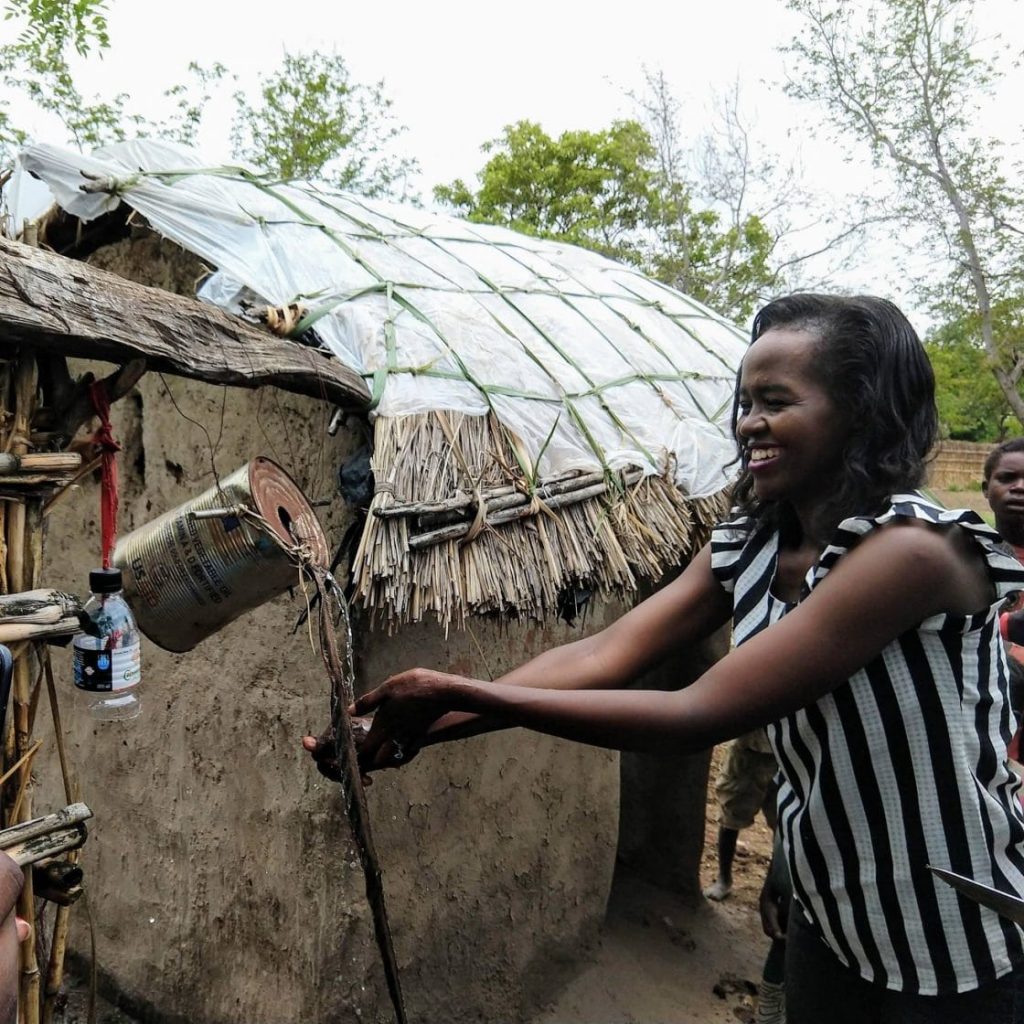
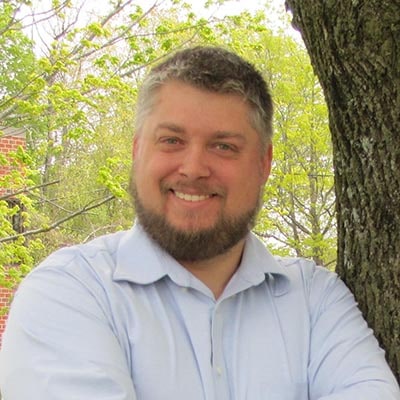
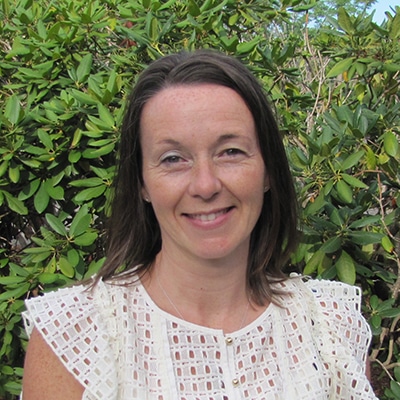
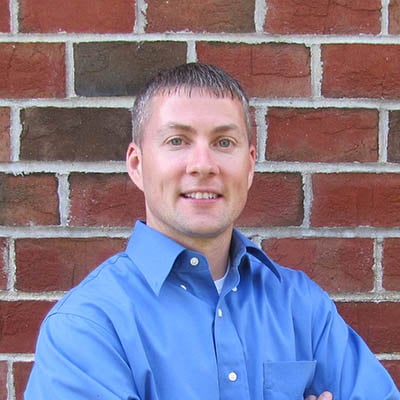
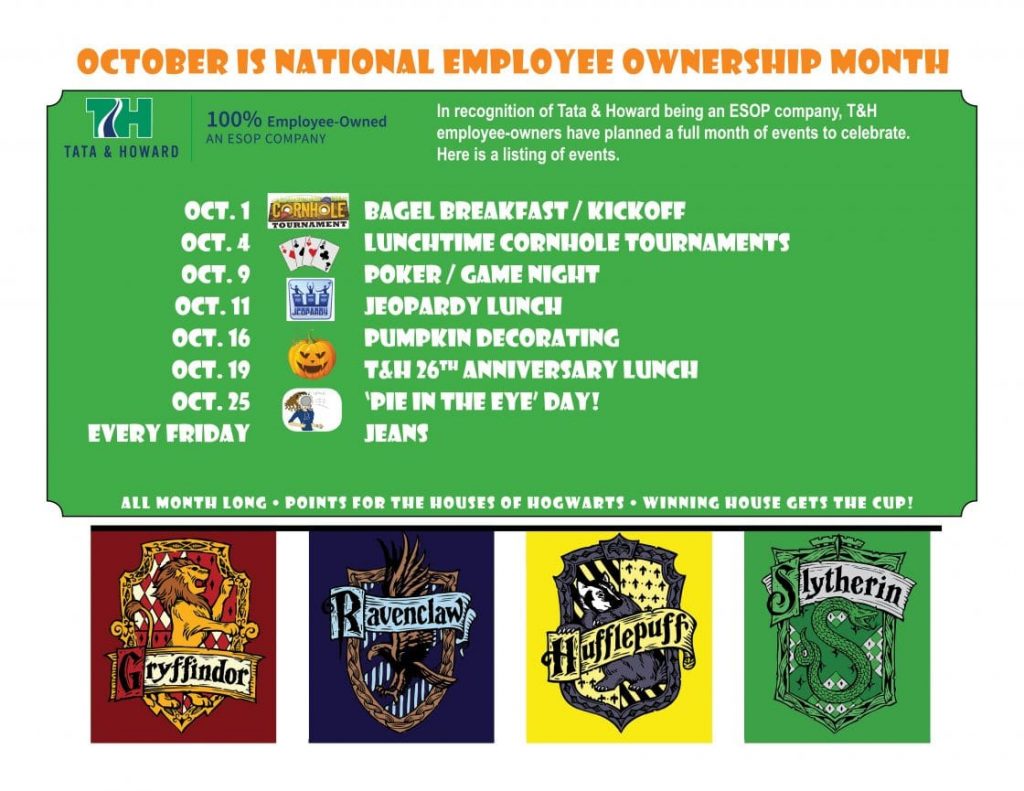 T&H kicked off EOM with our Employee Breakfast & Presentation on October 1st. We are encouraging our employees to participate in weekly hosted games and activities to gain points for their teams – which will be modeled after the Houses of Harry Potter’s Hogwarts School. The House with the most points at the end of the month will win the House Cup! Other fun activities include a cornhole tournament, poker night, lunchtime Jeopardy, pumpkin decorating, the firm’s Anniversary Lunch, and wrapping up with the Pie in the Eye Day.
T&H kicked off EOM with our Employee Breakfast & Presentation on October 1st. We are encouraging our employees to participate in weekly hosted games and activities to gain points for their teams – which will be modeled after the Houses of Harry Potter’s Hogwarts School. The House with the most points at the end of the month will win the House Cup! Other fun activities include a cornhole tournament, poker night, lunchtime Jeopardy, pumpkin decorating, the firm’s Anniversary Lunch, and wrapping up with the Pie in the Eye Day.
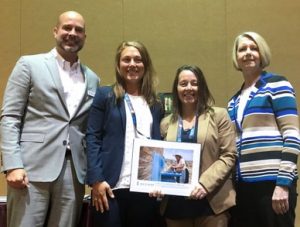
 Don not only supported the Water For People organization individually, he also shared his passionate support with the employees of the firm he co-founded, Tata & Howard, Inc. Employees continue to support WFP through a payroll deduction program, which Don initiated. At the end of each year, the company matches the employee’s donations.
Don not only supported the Water For People organization individually, he also shared his passionate support with the employees of the firm he co-founded, Tata & Howard, Inc. Employees continue to support WFP through a payroll deduction program, which Don initiated. At the end of each year, the company matches the employee’s donations.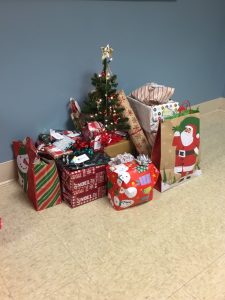
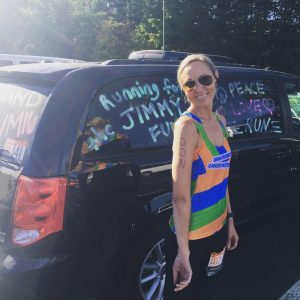
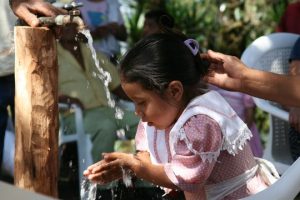
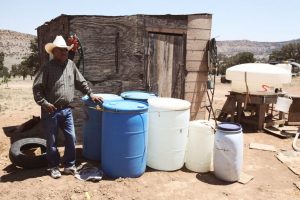
 It is widely known how important water is to our lives and the world we live in. Our body and planet is comprised of about 70% water – making it seem like it is easily accessible and plentiful. However, when you rule out our oceans and ice caps, less than 1% of all the water on Earth is drinkable. Of that less than 1%, groundwater only accounts for 0.28% of fresh water around the globe. Safe drinking water is a privilege we often take for granted while we brush our teeth or drink a glass of water in the morning. While we are giving thanks to our family, friends, and food during Thanksgiving, we should also give big thanks for our clean drinking water and the people who make it happen.
It is widely known how important water is to our lives and the world we live in. Our body and planet is comprised of about 70% water – making it seem like it is easily accessible and plentiful. However, when you rule out our oceans and ice caps, less than 1% of all the water on Earth is drinkable. Of that less than 1%, groundwater only accounts for 0.28% of fresh water around the globe. Safe drinking water is a privilege we often take for granted while we brush our teeth or drink a glass of water in the morning. While we are giving thanks to our family, friends, and food during Thanksgiving, we should also give big thanks for our clean drinking water and the people who make it happen.